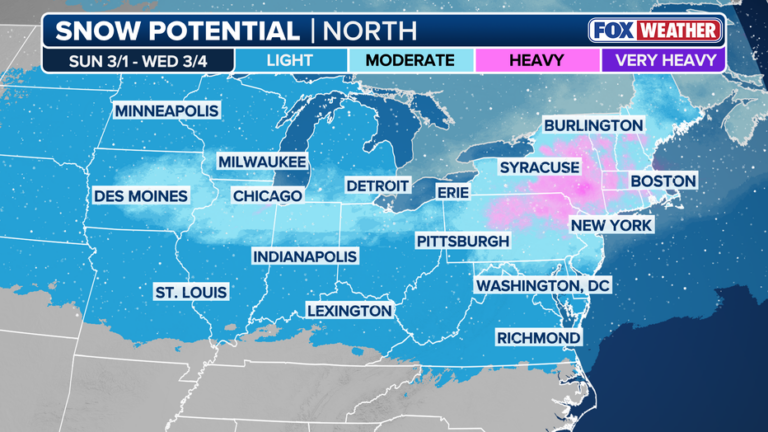YWN will be publishing a centralized directory of things to keep your children occupied with as all are currently home without school, and unable to go outside.
There are many Torah learning events, educational online events, entertainment for children, musical live streams etc.
PLEASE SEND ANY ITEMS YOU ARE AWARE OF TO HAVE THEM LISTED HERE TO [email protected]
Kids Programs
-
- Torah Umesorah Educational Programs
- ChinuchPhone – Teleconference schooling
- Morah and Me – Educational Experience for PreSchoolers
- Misameach Shows
- What: Free live shows
- Where: Live | Spreading Smiles
- More: Misameach on Vimeo
- Bnos Agudas Yisroel Hotline
- What: Middos, Tehillim, Parsha
- Where: 720-721-4724
- Yeshivas Mordechai HaTzadik
- What: Live presentations for children
- When: 30 minute presentation start on the hour, 12pm, 1pm, 2pm, 3,pm
- Where: 646-726-9977
- Torah Live www.torahlive.com
- TorahAnytime children’s program
- 718-298-2077 – Press 9 followed by the class ID 106061 and then #
-
Pirchie Agudas Yisroel Hotline: 718-663-0212Stories, Navi, lessons in Emunah, Parsha questions and much more!
- Story time! Every night from 7:30-8:00 pm, Mon-Thursday
Zoom link: https://axiomsl.zoom.us/j/424658244?_ga=2.155903163.1601996520.1584886250-878179718.1545707715 Or –Call in number 9292056099 PIN number 424658244#
- Bnos Pen Pals – Matching girls in different US cities, grades 2-8. E-mail your age, city, and contact information.
E-mail [email protected] - Wonder Words – Stories, songs, activities, and contests. Call anytime: 718-305-6960 Wonder Words live presentations – Monday-Thursday 12 pm, 1 pm, 2 pm, 3 pm. Call: 646-726-9977.
- Masmidei HaSiyum – A learning initiative for boys, with new prizes and raffles every few hours.
E-mail – [email protected] OR
Call 347.201.0270. - Tznius Hotline – For girls ages 8+. Daily message, 5-10 minutes, with stories and ideas to help young girls gain an appreciation for tznius. Leave your name, number, and address after listening, to be entered in a raffle.
Call: 718-907-6888
- Torah Umesorah Educational Programs
Entertainment
Jewish
- Jewish educational and activity videos for teens and kids – www.fliqrr.com
- MBD Clips and other Media click here
- Pictures of Gedolim and famous people click here
- Jewish videos (paid subscription) https://torahtreasure.com/
- Audio recordings of jewish books: click here
- Inspiration, contests, and more! https://www.insidetimezone.
com/ - Audiobooks for kids; Jewish and Non-Jewish https://www.chilazonpress.com/
single-post/2020/03/19/ Stories-for-Children - Jewish games for children http://torahgames.org/
- Jewish bedtime stories https://www.jewishbedtimestories.com/
- Kids radio show https://www.thelakewoodscoop.com/news/2019/03/your-children-can-be-on-scoop-kids-radio-and-enter-a-raffle-too.html
- Shmorg – entertaing videos https://www.oorahauction.org/shmorg-collection.php
- Misameach – daily live shows. Tune in for something new each day! LIVE.MISAMEACH.ORG
- The Jewish Platform – stories, entertainment, inspiration, live shows and more Thejewishplatform.com
- Go to nakiradio.com for Jewish music, kids programs, shiurim and special shows
- One More Shabbos video by Rabbi Tropper https://tube.emek.org/video/DhkYHnPI4iw
- Collection of crossword puzzles and children’s funpages Puzzlesforprint.com
- Over 4 hours of free children stories! Learn about the Geshmak of Avodas Hashem and Midos Tovos! Check out storieswithgeshmak.com
- Stories by Rabbi Juravel –
- Uncle Pinchey – videos for children Unclepinchey.com
- Torah Tots – Games and coloring sheets – torahtots.com
General
- The San Diego Zoo has a website just for kids with amazing videos, activities, and games. Enjoy the tour! San Diego Zoo Kids: Home
- Alaskan Wildlife cams http://www.adfg.alaska.gov/index.cfm?adfg=viewing.webcams
- Geography and animals https://kids.nationalgeographic.com/
- Explore the surface of Mars on the Curiosity Rover. Access Mars: A WebVR Experiment
- The Canadian site “FarmFood 360” offers 11 Virtual Tours of farms from minks, pigs, and cows, to apples and eggs. https://www.farmfood360.ca/
- This Virtual Tour of the Great Wall of China is beautiful and makes history come to life. https://www.thechinaguide.com/destination/great-wall-of-china
- This iconic museum located in the heart of London allows virtual visitors to tour the Great Court and discover the ancient Rosetta Stone and Egyptian mummies. https://britishmuseum.withgoogle.com/
- No need to travel to one of the Smithsonian’s zoos or museums — this website brings your child everything from live video of the National Zoo to the Smithsonian Learning Lab right to their screen https://www.si.edu/kids
- Dr. Schnitzel science show! https://drive.google.com/file/d/1Ao9wcyElCAWl5zm6Hx_dThzIOlgHXoAv/view?usp=sharing
- Krazydad – free printable puzzles for teens Krazydad.com
- Chrome Music Lab – Music activities – https://musiclab.chromeexperiments.com/About
- Bronx Zoo live cams – https://bronxzoo.com/virtual-zoo/live-cams?L=2&utm_content=2020-4-15_ticket-and-member-promo-4-15&utm_medium=email&utm_source=WCS-EmailCampaign&utm_campaign=owned
Activities & Games
- Read, play games, and hang out with Dr. Seuss https://www.seussville.com/
- Easy indoor activities for kids https://princesspinkygirl.com/easy-indoor-activities/
- Indoor Activities for busy toddlers https://busytoddler.com/2020/03/indoor-activities
- Play games and learn all about animals https://switchzoo.com/
- Play with fave show characters and learn too https://pbskids.org/
- 300,000+ FREE printable worksheets from toddlers to teens https://www.123homeschool4me.com/home-school-free-printables/
- Crafts, activities, mazes, dot to dot, etc, https://www.allkidsnetwork.com/
- Fun games, recipes, crafts, activities https://www.highlightskids.com/
- Printable board games, activities and more for phonics and reading all using evidence-based methods. Can be customized to any student’s needs including creating flashcards for other subjects. https://dogonalogbooks.com/printables/
- Quick & easy at home projects curated for kids 2 and up https://www.kiwico.com/kids-at-home
- Engineering challenges with things you have at home https://thehomeschoolscientist.com/paper-structures-engineering-challenge/
- Online photograph jigsaw puzzles You can set the pieces from 6-1000+ https://www.jigsawexplorer.com/
- rafts, projects, science, recipes for young children https://www.funology.com/
- Your child can play games, learn fun facts, and find out how to turn coin collecting into a hobby. https://www.usmint.gov/learn/kids
- PreK – 5 games for all subjects https://www.turtlediary.com/
- Games to get “into the book” https://reading.ecb.org
Conversation Games for Kids
No Supplies Required
All these games can be played on Shabbos as no supplies are needed.
Secret Message / Broken telephone
How To:
- Tell the kids to sit in a circle or line.
- The first child has to whisper a short message to the other child in line.
- The message has to pass from one player to another around the circle.
- The last person in the circle has to announce the message to the whole group.
- Everyone will have a good laugh at how the message changed while passing along.
Name Ten
Name 10 is a classic conversation game in which one person declares a category such as Fruit and the other players must come up with 10 examples of that category. The person who came up with the category gets to determine whether the examples fit.
This is similar to the game Scattergories – where teams or individuals come up with answers that fit the letter rolled on a die and the categories listed on their card. Scattergories was a hit in our household when I was growing up – a great game for any family who loves word play.
Traditionally a clapping rhythm keeps up the pace so players won’t take forever to come up with a response.
A my name is Alice
In this conversation game each person takes turns adding a name and a thing in alphabetical order. The first person might say: A my name is Alice and I like apples, and the next person could say A my name is Alice and I like Apples, B my name is Bobby and I like bears and so the game goes with each person reciting and adding to the chain.
- If you have young kids you can drop the recitation of what others have said and just have them do the next letter so it could be the first person says A my name is Ann and I like airplanes and the next person says B my name is Ben and I like balls.
- If you have older kids try having each person add to each letter as they recite. The first person could say A my name is Abigail and I like aliens, the next person must not only do their own letter but add to the previous letters A my name is Abigail and I like aliens and atoms, B my name is Betty and I like bananas.
Fact or Fiction
In this game each person takes turns telling two things that are true about themselves and one thing that is not, the other players must then guess what is fact and what is fiction. Younger kids may not quite ‘get’ this conversation game, but often their additions to the conversation are hilarious anyhow.
For a science based version of this game, check out Educational Insights Sci or Fi game – your family can try to determine science fact from fiction, while learning interesting facts along the way.
I Spy
This game traditionally starts with the phrase I spy with my little eye something… and then one descriptor is added such as red, smaller than a mouse, made out of wood. The other people take turns trying to guess what the item is. The person who guesses then gets to be the “spy”. Perfect conversation game for a car trip. You can find more road trip games ideas here.
- With younger kids, it goes well to be totally obvious like, “I spy a big yellow M.” The fun for them is in the spotting, and this makes it easier for them to be the “spyer” too. It may be more fun if you use a simple card deck made for young kids on road trips too so that they have a visual of what they’re supposed to be looking for. We like this I spy card game pack a lot.
Questions Only
Everything anyone says must be stated in the form of a question. This conversation game is incredibly simple, has no real winner or concrete ending, it will keep you giggling and like it or not it may just crop back up hours after you thought it was finished.
And speaking of questions – the simple conversation game of asking interesting questions to answer never gets old. A couple recommended resources: Table Topics cards have a great selection of question packs from family dinners to questions for teens.
Another popular set of questions comes from The Kids Book of Questions – great way to keep the conversation flowing.
20 Questions
One player thinks of an object, letting the others know only whether it is animal, vegetable, or mineral. Then the other players ask questions that can be answered only with yes or no.
For instance, if the object is a car (mostly mineral), the players will ask, “Is it bigger than a laptop computer?” or “Can it move?” The object: Guess the answer in fewer than 20 questions.
Botticelli
Each player takes on the persona of a well-known person and offers only that person’s initials as a clue. The questioners try to guess the identity of the person by asking specific questions that can be answered only with yes or no.
The first questions may be general, such as “Are you alive today?” The player, answering in character as George Washington, for instance, may say, “No, I’m not alive today” without offering any other information. The next questions continue to zero in on the identity until a player correctly guesses the mystery person.
Botticelli is a great game for older kids who are familiar with people in the news and historic figures. It can be made more difficult by using just a last or first initial.
Geography
Each player comes up with a place name (town, state, country, etc.) that begins with the same letter as the last letter of the place the previous player mentioned.
Example: Player 1 says Spain. Player 2 has to name a place that begins with an N, such as New York, which ends in K. Player 3 then mentions Kansas. Keep going for as long as you can name a new place.
Ghost
One player names a letter of the alphabet. Each player takes a turn adding a letter that contributes to the spelling of a word each has in mind. A player can be challenged if another player suspects the letter just added isn’t part of a real word.
The catch: Players have to avoid completing a word. Each time a player completes a word, he gets another of the letters in the word ghost. Once a player has all five letters, he’s out of the game. But that person can then help, or haunt, other players.
Example: Player 1 starts with the letter B. Player 2 adds A. Player 3 adds L, having in mind the word balance. Player 4, thinking about the word balloon, adds another L, forgetting that it completes the word ball. The fourth player, having inadvertently spelled a word, would get a G for ghost, but stay in the game.
I Packed My Grandmother’s Trunk
Each player starts off with the same sentence: “I packed my grandmother’s trunk and in it I put ___.” The player completes the sentence with a word that begins with the letter A. For instance, “I packed my grandmother’s trunk and in it I put an alligator.”
The next player repeats the previous sentence and must add a B word. “I packed my grandmother’s trunk and in it I put an alligator and a banana.” In turn, each player has to remember what the past players have said and add an item that starts with the next letter of the alphabet.
How many?
This simple game started when Immy was about three years of age and fascinated by animals but it can easily be adapted to other themes. I would start by asking a question about a specific attribute (see some examples below) and she would call out as many responses as she could think of;
- How many animals can you name that hatch from eggs as babies?
- How many animals can you name that have patterns on their bodies?
- How many animals can you name that eat leaves?
- How many insects can you name that have six legs?
- How many vehicles can you name with four wheels?
- How many things can you name that are cone shaped?
I’m thinking of…
A simplified version of 20 questions, and somewhat easier than I Spy when on the move in the car, we start this game with a single object in mind and the phrase, “I am thinking of something ….,” and then name a feature or attribute of the object or thing. So it might begin, “I am thinking of something that is blue.” The other players are welcome to make a guess or ask for another clue and we go back and forth between clues and guesses until they work out the correct answer.
What’s Better?
This fast paced game simply asks kids about their preferences between two things –
- “What’s better – banana or apple?”
- “Banana”
- “What’s better – banana or cheese?”
- “Cheese”
- “What’s better – cheese or chocolate?”
- “Chocolate”
- “What’s better – chocolate or ice cream?”
Of course, you don’t have to choose food – books, prizes, games, sports – anything is fair game. Debates about different choices that children make provide lots of insight into their individual personalities and preferences.
Odd One Out
Begin by naming three items – two that are connected in some way and one that is not (you can make this as easy or as hard as you wish, depending upon the age and interests of your children) and ask your children to choose the odd one out. For example with “train, bus, hair” it is easy to identify the odd one out. “Platypus, cobra, horse” is more challenging. “Chop, chicken, ship” focuses the game on identifying different sounds. “21, 63, 78” turns it into a math challenge.
Silly Songs
Younger children love to listen to silly nursery rhymes created by altering the rhyming words of familiar nursery rhymes. For example,
“Twinkle twinkle little bat,
How I wonder where you’re at”
or
“Baa baa black sheep, have you any eggs?
No sir, no sir, But I have some pegs.”
Spotting the funny rhyme is fun for little ones whilst older children (5 years+) will enjoy making the rhymes with you.
Tongue-Twisters
Make up your own funny tongue twisters by choosing a letter or sound and working together to make a sentence with as many words beginning with the chosen sound as possible.
Rhyming Tennis
Players agree on a rhyming family – say ‘at’ as in hat – and take turns, back and forth, each saying a new word that fits the family.
Sound Tennis
Players agree on an initial sound or blend, say ‘P,’ and then take turns back and forth, each saying a new word that begins with that sound, until the round comes to a finish when one player cannot think of a new word beginning with the nominated sound. We allow the other player, the ‘winner,’ to choose the new sound for the next round.
Alphabet Chain
Choose a category and take turns naming an item that fits the category following the sequence of letters of the alphabet. So the first person chooses a word starting with a, the second person a word beginning with b, the third person with c, etc. The category can be anything at all – animals, countries, names, superpowers, etc
Supplies Required
That’s How We Roll
You Will Need:
- Pen
- Paper
- Dice
How To:
- You can practice the activity for a public speaking event or in a class.
- Write a list of questions that you would want the kids to answer. The questions can be icebreakers or the ones that elicit opinions or thoughts.
- Give each child a copy of those questions and make sure they’re numbered.
- Now tell the students to take turns at rolling the dice. The kids have to answer the number they get on the dice.
Human Experience Bingo
You Will Need:
- Pen
- Paper
- Bingo sheets.
How To:
- Tell the kids to make a list of all their positive experiences, as an adventurous holiday, scuba diving and so on. Work on the list until you get 30 to 40 experiences.
- Now give the kids a blank bingo sheet and tell them to write one experience in each box.
- Now make the kids sit facing each other in two rows of chair.
- Now give the pairs two minutes to talk and discuss with others.
- The game will continue until players get five spaces in a row on the bingo card.
Trait Roulette
You Will Need:
- Pen
- Paper
How To:
- This game is ideal for kids who know each other well.
- Tell the kids to work together and come with a list of character traits that a person might have. Make sure they stick to positive traits. Examples include generous, adventurous, and wise.
- Write the attributes on slips of paper and put in a bag.
- Let each kid take turns at taking out one character trait slip from the bag.
- The kid now has to announce who they think possesses that character trait. He also has to explain why he made that choice.
Story Starter Hot Potato
You Will Need:
- Paper
- Pen
- Chairs
- Music player.
How To:
- Write a few beginnings of the story.
- Divide the kids into small groups of five members. Tell them to arrange the seats in a circle.
- Give each group a story starter at the beginning of the rounds and play music in the background.
- Tell the kids to move around the circle. Now tell one child to give the other player of the group a sentence of the story.
- Now tell the other kid in front of him to continue the story. Kids have to go around the circle, adding one sentence at a time until you give a signal or the music stops.
- The player struggling to think of a sentence when the music stops will be disqualified.
- You can continue the second round with the same story or give a new story starter.
Hide And Speak
You Will Need:
- Index cards
- Marker
How To:
- Prepare several questions and write each on the index card. The questions must be comprehension questions, vocabulary issues or get-to-know-you questions.
- Divide the kids into two teams. Explain to them that you have dinner cards throughout the room.
- At the call of ‘go’, the kids have to start finding the card. They have to bring the cards to you and then answer the question on it.
- If the student answers the question on the card correctly, he will earn the card for his team. If he is unable to answer, then he has to get someone else from the team to respond to the question.
- The team that has most of the cards will be the winner.
Find Your Partner
You Will Need:
- Paper
- Pen
How To:
- Make a small slip of paper for each kid. The paper should have one word that goes with the other word on another piece of paper. For example, paper-pen, spoon-fork, day-night and so on. Fold the papers and put in a bowl or hat.
- Now tell the kids to take out one slip of paper from the hat, one at a time.
- When you say ‘go,’ the kids have to move around and try to find their partner.
- The kids now have to come to you to ascertain whether they have chosen the correct partner.
- The partners now have to work together to create new pairs of words.
Charades
You Will Need:
- 2 bowls
- Paper
- Pen
How To:
- Players divide into two teams and each member writes a phrase on a slip of paper, folds it up and places it in their team’s bowl. A player picks a paper from the opposing team’s bowl and acts out individual words, syllables, and other hints to depict the phrase.
- This pantomime play hones communication skills as each player provides nonverbal clues to help teammates guess the right phrase within an agreed-upon time limit. The game has some formal conventions—for instance, gestures that describe what type of phrase is being guessed, such as making quote marks with your fingers for a quotation or placing hands together then opening them to signal a book title. But you can adapt the format in many ways.
- Unlike the other games here, charades can’t be played in the car, but it’s a great party game once you get to your destination!
Pesach
- Haggada projects for kids http://www.chinuch.org/quick_search/haggada/materials/topic (check that site for other useful materials)
- Pesach and haggada projects for kids Pesach – Torah Umesorah – Coronavirus Response
- Sensational Seder
- Chinuch Music – Free kids music downloads for all Pesach songs Chinuchmusic.com/pesach
- Pesach Sing-Along Karaoke songs for kids – https://www.dropbox.com/sh/1g9xmr7k5wy4h84/AAAtrhk46vgWrNHVvY8PEYjDa?dl=0
Educational / Frum
- Kriah resources for children Alephbeis App
- Free accounts are being offered to all for Schools due to this crisis
- Learn Taryag Mitzvos with your child | AUDIO: Learn the Taryag Mitzvos with your child at home; In Junior and Advanced learning options The Lakewood Scoop
- Family Shabbos Learning – Print out to learn with the family on Shabbos Family Shabbos learning bulletin Vayikra year 11.pdf
After Shabbos go to – Shabbos,Family Learning Raffle Form – fill out all relevant questions and all names will be entered into a raffle!
The raffle will be held live each Sunday morning at 10:00am on Zoom, with this link: Shabbos learning raffle live! - Menucha Classrooms https://menuchaclassrooms.com/pages/classes https://www.instagram.com/menuchaclassrooms/
- Naaleh – Free online Torah classes Naaleh.com
- Living Lessons – Illustrated stories and limudim brought to life through animation. Narrated by Rabbi Paysach Krohn. – https://www.turesponse.org/living-lessons/
-
Brachos Flash Cards for kids. – https://www.brachos.org/
brachos-flash-cards/ - Navi Club – 5th-8th grade girls’ Navi discussion group by telephone, Tuesdays and Thursdays at 4:15 EST. For more information, E-mail eschuli613 at gmail dot com, or call 904-235-7067
Educational/General
- Make learning exciting! https://classroommagazines.scholastic.com/support/learnathome.html
- Educational games for children https://www.abcya.com/
- Online books https://www.raz-kids.com/
Educational / Skills
Typing
- Teach your kids typing and basic technology skills Learn to Type | Free Typing Tutor – Typing.com
- Improve your typing skills while competing in fast-paced races with up to 5 typers from around the world. Nitro Type | Competitive Typing Game | Race Your Friends
- Keyboarding practice Typing Club
Code
- Learn to code Codecademy: Learn to Code – for Free
- Coding with Star Wars https://code.org/starwars
- Scratch draws students of all types into coding and lays a foundation for future learning. https://scratch.mit.edu/
Learning Resources
Chavrusas
- Find a chavrusa to learn with remotely Chavrusa Match
- Portland Kollel – Learning partners available by phone. Contact [email protected].
Shiurim
- Large collection of shiurim https://www.torahanytime.com/
- Large collection of shiurim
1. (718) 701-5157
2. http://www.kolhalashon.com/ - Hashkafa/Mussar: Chovos Halevavos – Shaar Habitachon
- Speaker: HaRav Simcha Bunim Cohen Rov in Lakewood NJ
- Time: 1:25-1:35pm, daily
- Call in number: 205-825-9057
- OU live – ou.org/oulive.
- Each afternoon at 1:00PM EDT – Recitation of Tehillim (chapters 20, 27 and 130) and divrei chizuk (words of inspiration) from our rabbanim.
- Monday-Thursday at 8:00 PM EDT nightly hour-long program, bringing you front row seats to our conversations with some of our community’s most inspiring and uplifting personalities.
- Daily shiurim via zoom from 4:30-5:00 pm – www.2ndseder.com
Next to each speaker is a link to the zoom info for that shiur - Mishnayos phone system for men and boys ages 9+. Shiurim, tests, weekly raffles
Call: (929) 299-6700 - Night Seder America – Nightly Gemara learning program via zoom for boys 6th-8th grade. 8:00pm-8:45pm. Gemara Meseches Tamid – celebrating a siyum on Erev Pesach
Zoom meeting ID: 897-063-4419 - live שיעור on the סוגיות of ערבי פסחים given by גדולי ראשי ישיבה and מגידי שיעור.
The number for the live שיעורים is:646.726.9977
All throughout the day you can call732.363.6713 Or 718.766.4572 to hear a שיעור הכנה for this שיעור, as well as the מראה מקומות for the שיעור itself. - Chovos HaLevavos Shaar haBitachon – R’ Simcha Bunim Cohen, 1:25-1:35 pm daily Call: 205-825-9057
- Portland Kollel – Call-in inspiration nightly
E-mail: portlandkollel.org OR
Call: 503-245-5420
Online Libraries
- Otzar HaChochma (tons of seforim for viewing/searching) is currently free for everyone: https://tablet.otzar.org/
- Sefaria: https://www.sefaria.org/
- HebrewBooks.org has many seforim for download; you can easily get any Masechta in Shas here or Mishna Berura here
- Halacha Academy has a bunch of clear, concise Halacha summaries in English: http://halacha.academy/
- Artscroll digital library – free 30 day subscription http://kb.artscroll.com/article/AA-20714
- Otzar Chachma – currently free http://www.otzar.org/otzaren/indexeng.asp
Other
- 3D Introduction to Kodshim
- 3D Introduction to Menochos
- Talmud Quest – a free app of Gemara review games. Great for middle school and high school Gemara learners.
Inspiration
- Bitachon – Hotline with recorded shiurim. 732-719-3898
-
B’Lev Echad – Live learning for women: Daily Tehillim, tsnius message, and divrei Torah quoted from R’ Avigdor Miller, zt”l. 25 minutes. Sundays at 9:30 am; M-F 8:35 am; Motzaei Shabbos 10:45pm.
Call: 718-906-6451. Press 9 and then 8. - Chazzak – Hotline with recorded shiurim. 718-258-2008
- Emunah Daily – Hotline with recorded shiurim.
Call:605-475-4799, Access code 840886# - Inspire by Wire – Hotline with recorded shiurim, for women. 718-906-6451
- Kol HaLashon – Hotline with recorded shiurim. 718-521-5231
- Nightly Tehillim – Live learning for women: ten specific perakim with a message quoted from R’ Avigdor Miller. Names of cholim can be added. 10:00 pm
Call:712-770-4160 - Receive a Nightly Phone Call – Live learning for women: Tznius message and Divrei Torah quoted from R’ Avigdor Miller or R’ Elimelech Beiderman
E-mail your name, address, and phone number to [email protected], subject: HOTLINE - Teleconference series with the author of Praying with Fire, For the next two weeks Monday, Tuesday and Thursday, at 9:15 PM.
Call: 646-558-6338. pin: 30671 #
E-mail questions to [email protected] - Torah Anytime – Hotline with recorded shiurim – 718-298-2077
Home-schooling
- Corona Cheider – a resource with about 2,500 files for kids of all ages in Yiddish and English. https://drive.google.
com/drive/folders/1hCIG- PgDCvlpqPiHAmpxsOHP8KMDMPlg - 24 activity books in Yiddish https://www.dropbox.
com/sh/9eji3mmfdyl6rkj/ AACG0pUFtNUH_G0i-DYrTGJga?dl=0 - Aish Academy (now FREE!) https://academy.aish.
com/ - Chinuch at Home – expansive website (not free) http://www.chinuch.org/
index.html - Chai Lifeline – kids entertainment channel https://www.
chailifeline.org/channels
For Parents
- Chai Lifeline – Parenting in quarantine: FAQs for coping https://blog.
chailifeline.org/coronavirus- quarantine-faqs/ - Staying Calm Amidst The Corona Crisis – R. Mordechai Weinberger & Dr. Dovid Lieberman https://www.
torahanytime.com/#/lectures?v= 105408 - Helping you and your family navigate the Coronavirus crisis YIDDISH (free but signup required) https://nefesh.org/
workshops/ CoronaviruscrisisYIDDISH/login - Torah Anytime – special section for Corona chizuk (some 300 shiurim in several languages) https://www.
torahanytime.com/#/topic?c=285 - Aish.com special section https://www.aish.com/
ci/ - Official central US government website for the virus https://www.cdc.gov/
coronavirus/2019-ncov/index. html - Gilyonos for Shabbos (pdf files of 432 gilyonos) http://ladaat.info/
gilyonot.aspx - Penimi – Carving Out Calm for the Jewish Woman amidst the Corona Storm: Penimi offers chizuk, strength and empowerment (subscribe to receive daily emails available) penimi.org/covid19
- The Jewish Platform – inspiration and entertainment Thejewishplatform.com
- Krazydad – free printable puzzles Krazydad.com
- Guide for parents and activities https://jfsclifton.org/wp-content/uploads/2020/04/Activity-Guidebook.pdf










